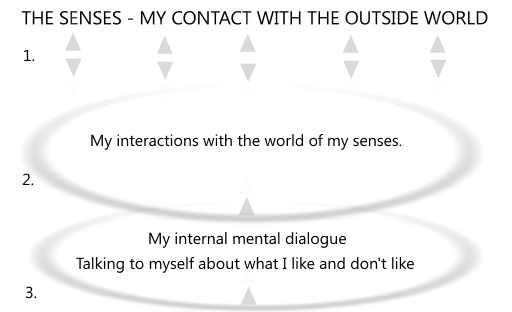Tenrikyo Dynamic Mission - WORLDLY COMMON - TRUTHS OF THE WORLD - "In the Shallow Water" - Page 2

The origin of water in this world.
This time, on the real truth of water,
there is no knowing what kind of talk I shall give.
I shall begin to tell you about this origin clearly,
but I cannot tell it as long as you think in common worldly ways.
The minds of human beings are indeed shallow.
You talk only about things already visible.
Please recall that in the poems above "water" is a metaphor for the human mind. We are then informed that we can understand and be enlightened by the words "clear" or "muddy". As used in the instruction concerning the true origin of our mind, the term "shallow" does not mean that we are not knowledgeable or interesting. In the context of the Tenrikyo Dynamic Mission it means that our thinking concerning the true origin of our mind lacks the depth and sincerity needed to expose and reveal the true origin of our mind (metaphorically the origin of water). Since we are able to form truths in our mind we tend to only concern ourselves with ideas and truths that appear and are visible in our mind and not with the original consciousness, the parental mind of God, that those ideas and truths rise up within. We are after all able to know and understand all sorts of interesting and marvelous truths without ever knowing and understanding the true origin of our mind. These talks then are meant for people who would like to go deeper and know and understand the true origin of their own mind, the original truth of self, the original cause of all things.
the truth of the human mind,
Now today, whoever you may be,
I shall clearly reveal your true innermost heart.
It is reasonable to assume that for many of us human beings the three elements shown below:
(1) the five senses
(2) the deeds and actions carried out while interacting with our sensory environment
(3) our internal mental dialogue (the voice and images of our mind or imagination)
Can be understood as representing the total material human mind and the total human experience of a separate self freely acting in the world. That material description of the human mind does not however tell us anything about the way in which our mind is capable of creating the truths of our world. Nor do they tell us anything about the origin of our mind. For that reason those three elements are described here as a being a "shallow" description.
From the deeper point of view of the truth of origin then these three shallow elements taken together are "worldly common". Though they differ in true content they are functionally common to and the same for everybody in the world and are more or less apparent without going into a great deal of sincere deep thought. At this point it should be remembered that being "worldly common" does not mean that those basic elements of mind are wrong. In fact our "worldly common" thought processes are quite marvelous and we would cease to be human without them. That said, as we go deeper into exploring those three elements we can then say that we are not only looking for the true origin of the mind but also for the true origin of what it means to be a human being. That is to say that the true origin of our mind is also the place where we as human beings are created.
the origin of human beings.
That being the case, for anyone who would like to know and understand the truth of origin, the original cause of all things in detail, those three elements of mind and the truths that they create, though marvelous, are just too shallow to provide that kind of deep knowledge and understanding. To make progress then, we are hastened to find a way to briefly and quickly ignore "worldly common thinking" and turn our attention inward to clearly expose the original consciousness that our mind and the ideas and truths that rise up in it. In the effort to go deeper then let's see if I can dive in and reasonably expose the meaning of "worldly common" and "truths of the world" as I trace my mind back to its origin. Of course the gentle reader is invited to follow along in their own mind.

The core of your mind will become apparent.
| Worldly Common pg. 1 | Worldly Common pg. 2 - "In the Shallow Water" | "Worldly Common pg. 3 - Diving Deeper" |
| Worldly Common pg. 4- "Deeper Still" | Worldly Common pg. 5 "Oh!" | Worldly Common pg. 6 "Me My Mine" |
| Worldly Common pg.7 "Borrowed" | Worldly Common pg. 8 "Lent" | Worldly Common pg. 9 "One Light Reflected" |
| Worldly Common pg. 10 "What I Have Learned" | Worldly Common pg. 11 "Some Metaphors" |